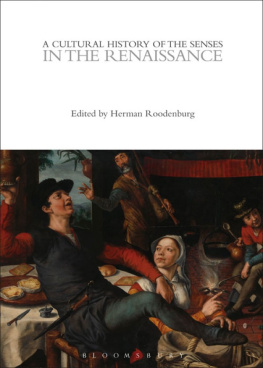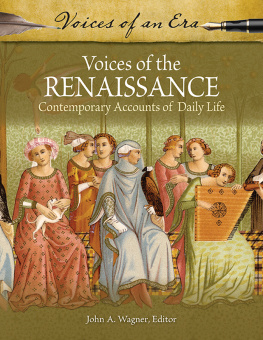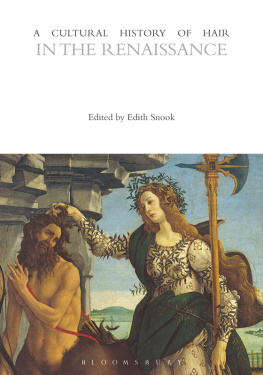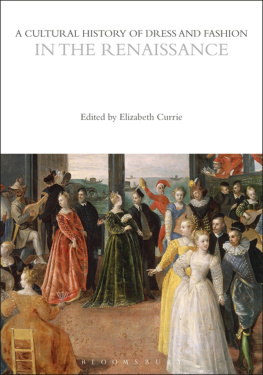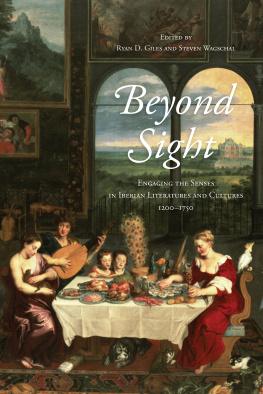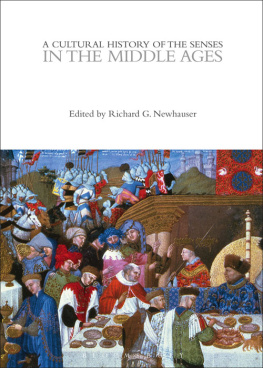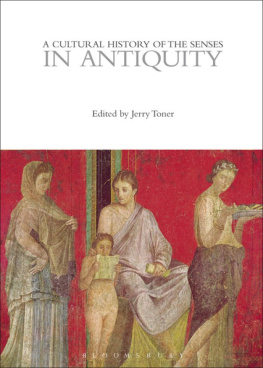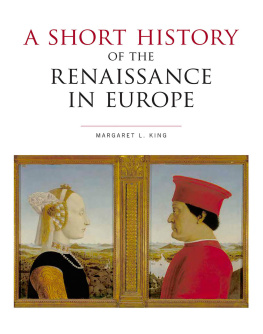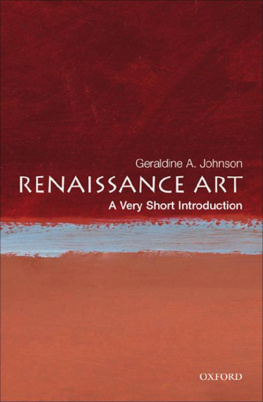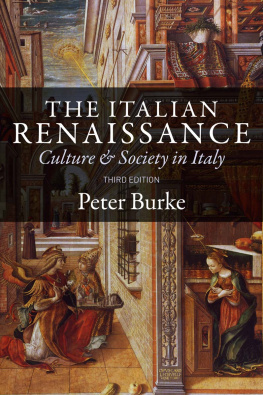GENERAL EDITOR, CONSTANCE CLASSEN
A Cultural History of the Senses is an authoritative six-volume series investigating sensory values and experiences throughout Western history and presenting a vital new way of understanding the past. Each volume follows the same basic structure and begins with an overview of the cultural life of the senses in the period under consideration. Experts examine important aspects of sensory culture under nine major headings: social life, urban sensations, the marketplace, religion, philosophy and science, medicine, literature, art, and media. A single volume can be read to obtain a thorough knowledge of the life of the senses in a given period, or one of the nine themes can be followed through history by reading the relevant chapters of all six volumes, providing a thematic understanding of changes and developments over the long term. The six volumes divide the history of the senses as follows:
Volume 1. A Cultural History of the Senses in Antiquity (500 BCE 500 CE )
Volume 2. A Cultural History of the Senses in the Middle Ages (5001450)
Volume 3. A Cultural History of the Senses in the Renaissance (14501650)
Volume 4. A Cultural History of the Senses in the Age of Enlightenment (16501800)
Volume 5. A Cultural History of the Senses in the Age of Empire (18001920)
Volume 6. A Cultural History of the Senses in the Modern Age (19202000)
One of the pleasures of editing volumes is the social adventures involved: discovering new colleagues and their writings and renewing the acquaintance of other colleagues whose work I have been following and admiring for many years. Reading and discussing their chapters, I learned much from all of them, as I also profited greatly from Constance Classens excellent guidance and comments. I also learned from the conversations as well as from the writings of a number of other scholars, including Wietse de Boer, Mickal Bouffard-Veilleux, Reindert Falkenburg, Christine Gttler, Daniela Hacke, Yannis Hadjinicolau, Philip Hahn, David Howes, Ulrike Krampl, Birgit Meyer, Jan-Friedrich Missfelder, Monique Scheer, Frits Scholten and Jojada Verrips. A special thanks goes to Alessandro Arcangeli, who kindly translated Federico Barbieratos chapter into English.
Introduction: Entering the
Sensory Worlds of the
Renaissance
HERMAN ROODENBURG
Let us start with a remarkable letter written in 1640 by a lover of the lute, a Frenchman who lived for some twenty years in the Dutch Republic. In it, he professed his belief that all our nerves and muscles serve the memory. He continued, so that a lute player, for instance, has a part of his memory in his hands; for the ease of bending and positioning his fingers in various ways, which he has acquired by practice, helps him to remember the passages which need these positions when they are placed. The letter, addressed to the French mathematician Marin Mersenne, was written by no less a figure than Ren Descartes. In an earlier letter to the physician Lazare Meyssonnier he had expressed a similar idea, stating his conviction that some of the species which serve the memory can be in various other parts of the body, for instance the skill of a lute player is not only in his head, but also partly in the muscles of his hands, and so on (Descartes 1991: 1436; Reiss 1996: 5989; cf. Roodenburg 2004: 1314).
Descartes was apparently intrigued by issues of sensory memorynot so much, like Marcel Proust, by the mnemonic workings of taste and smell (the famous madeleine dipped in limeblossom tea, taking Marcel back to his childhood years in Combray), as by those of touch and hearing. He considers the lute-players fingers brushing the strings and, implicitly, his ears picking up the sounds. Of course, such observations may be expected from a musician, perhaps especially a lutenist or, in our own times, a jazz pianist (Sudnow 1978). But to encounter such a thinking hand (cf. Bredekamp 2005; Pallasmaa 2009; Roberts et al. 2007) in the writings of a philosopher noted first and foremost for his Cartesian dualism comes as something of a surprise. As Timothy Reiss observed, Descartes was here expressing a sense of his own body, his very feel of memory under the skin, as it were, on the sinews of the body (Reiss 1996: 599). Indeed, modern neuroscientists, all keen now to dismiss Descartes error, might well concur. To paraphrase Descartes, the mind is also partly in the skin (Damasio 1994; cf. Montagu 1986: 346).
Descartes surprising, almost phenomenological observations may caution us to tread carefully before entering the captivating but often also confusing sensory worlds of Renaissance Europe. As Reiss and other scholars have argued, we have to realize that Descartes paternity of Cartesian dualism is a fairly misleading (and at the earliest a late eighteenth-century) impression of things (Gaukroger 1995, 2002; Reiss 1996: 589 n. 9). Descartes never claimed such radical dualism and his musings on sensory memory, on the mnemonic workings of the hand, only confirm that conclusion. Despite the strict distinctions he sought to draw, his was still a basically psychophysiological (cf. Paster 2004: 1112) and multisensory universe. In his philosophical quest, aiming to be a spectator rather than an actor, as he put it himself, he certainly elevated the spectatorial, disembodied eye. But his quest was open enough to also reflect on two of the lower senses, those of hearing and touch, and their distinct role in uniting body and mind (see also Chapter 5).
Historians of the senses have a habit of apologizing to their audience that the field is young and that a lot of work remains to be done. That may still be true for some of the periods discussed in the five other volumes of this series, but it clearly holds less so for the two centuries investigated here, those between roughly 1450 and 1650. Some of the senses, those of smell and taste and also the various inner senses distinguished in the period, have received appreciably less scholarly attention than those of sight, hearing, and touch (but see for instance on smell, Classen et al. 1994; Dugan 2011; Jenner 2011; Le Gurer 1990a, 1990b). Due to a remarkable flowering of sensory history among English-speaking scholars we also know more about the sensory worlds of Tudor and Stuart England than about those elsewhere in Europe (Cahill 2009; Dugan 2009, 2011). But we can certainly say that over the last ten years or so many historians (art historians, cultural historians, intellectual, literary, or medical historians) all discovered the sensescapes of the Renaissance. This volume offers a first panorama on those scapes: on what people may have sensed but, in particular, on how


